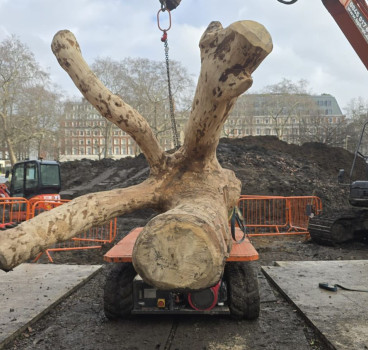Ai’s healing touch in hospital construction
We are in an era marked by remarkable technological advancements, and a majority of our resources, research and discussions are currently aimed at the rise of Artificial Intelligence (AI). AI is starting to leave a mark on various industries, and the construction sector is no different. Hospital construction can be complex, and the critical nature of its work means options for more streamlined and efficient processes should always be embraced. The sector is currently witnessing a significant transformation thanks to AI, and among the pioneers in these innovations is David Bailey Furniture Systems.
Hospital construction can pose unique challenges compared to alternative buildings mainly due to stringent regulations, resulting in a need for increased precision and intricacies when it comes to building and fitting out hospitals and other healthcare settings. AI is materialising as a transformative force in addressing these challenges, and David Bailey Furniture Systems is keen to embrace innovations, including the adoption of Magi-Cut software across all of our projects going forward.
AI in the NHS
Adopting AI in the NHS has never been more crucial, and it is helping the NHS navigate the challenges of the 21st century with unprecedented innovation and resilience. The benefits reach all areas of the construction process:
- Design and Planning
- AI tools are helping architects and engineers create efficient and functional layouts. They can analyse vast amounts of data to ensure that every square foot of the facility is used effectively, leading to more patient beds, better logistics, and reduced construction costs.
- Supply Chain and Material Management
- Optimising the supply chain and material management is another key area where AI shines in hospital construction. AI algorithms can forecast materials and track deliveries, ensuring a steady flow of materials and minimal delays.
- Quality Control and Safety
- AI can be used to monitor construction processes for quality control and safety. It can identify deviations from the original plans, detect safety hazards, and suggest corrective actions, ensuring a higher level of safety and construction quality.
DBFS use Magi-Cut
Another area in which AI excels in hospital construction is manufacturing. David Bailey Furniture Systems has emerged as a leader in harnessing AI’s potential for hospital construction with its use of ‘Magi-Cut’ software. Magi-Cut is an AI-powered cutting planning software that can maximise the efficiency of fitted furniture during the manufacturing process.
Magi-Cut is designed to handle the demands of any production environment, which helps with the specific requirements of fitted furniture in the healthcare industry, where infection control and durability are of paramount importance. This cutting-edge technology leverages AI to precisely enable our CNC ‘cut-edge-drill’ process to work meteorically and sustainably by optimising our boards more efficiently, which creates less waste from our offcuts. Ensuring that every piece of fitted furniture meets the highest standards for sustainability, hygiene and longevity. It significantly reduces production time, eliminates human error, and therefore ultimately lowers costs and risk of delays
AI is not just a buzzword, but a transformative force in the world of hospital construction and groundbreaking technologies such as Magi-Cut are propelling the industry into a new era of efficiency and excellence. Magi-cut and AI compliments the green revolution that manufacturers are adhering to nowadays. David Bailey Furniture Systems is proud to be at the forefront of this technological revolution, continuing to make fitted furniture in the healthcare construction smarter, safer, and more cost-effective. When companies such as David Bailey Furniture Systems embrace AI in the NHS, it can only result in a safer and more efficient healthcare environment for all.
Additional Blogs

4 Must-Follow Health and Safety Habits for the Modern Jobsite
The risks in modern jobsites are constant. Falls, chemical exposure and heat illnesses continue to injure workers across construction and related industries each year. The best way to reduce those...
Read moreDesigning multi-functional outdoor spaces through the power of Play Trees
Outdoor spaces are increasingly expected to do more than simply look good. They must invite interaction, support wellbeing, encourage movement and foster connection across generations. In schools,...
Read more

4 Ways Resilient Construction Gets it Right and 4 Ways It’s Still Falling Short
Climate change is becoming increasingly disruptive as the weather becomes stronger and more unpredictable. These circumstances are constantly pressuring the construction industry, which has had to...
Read more